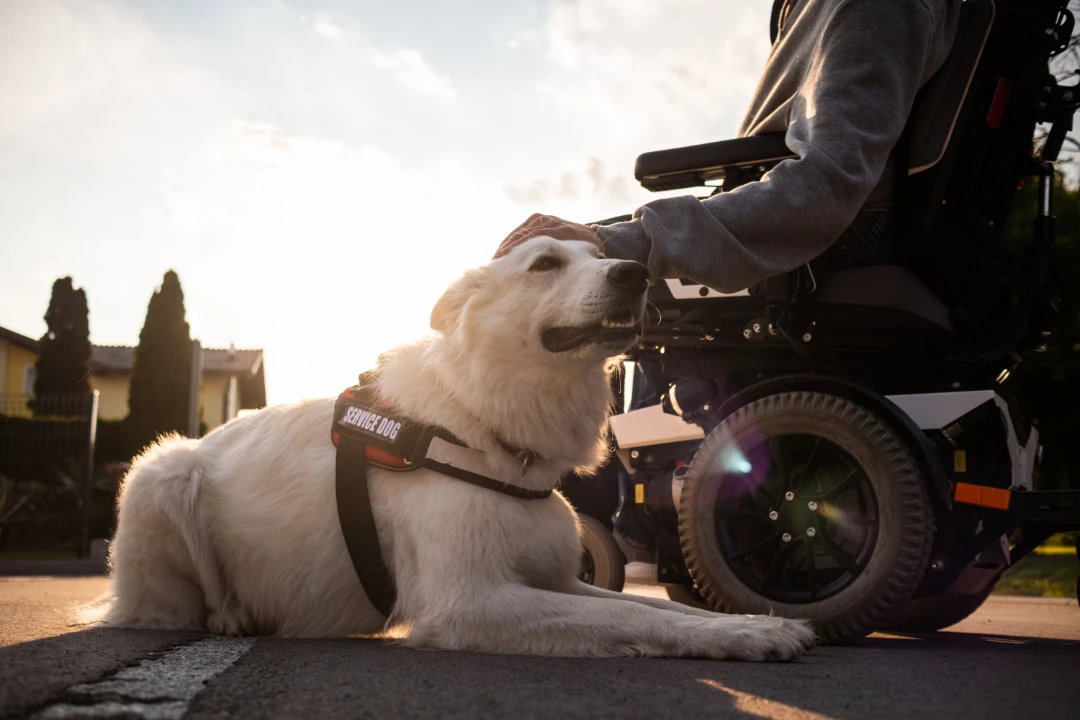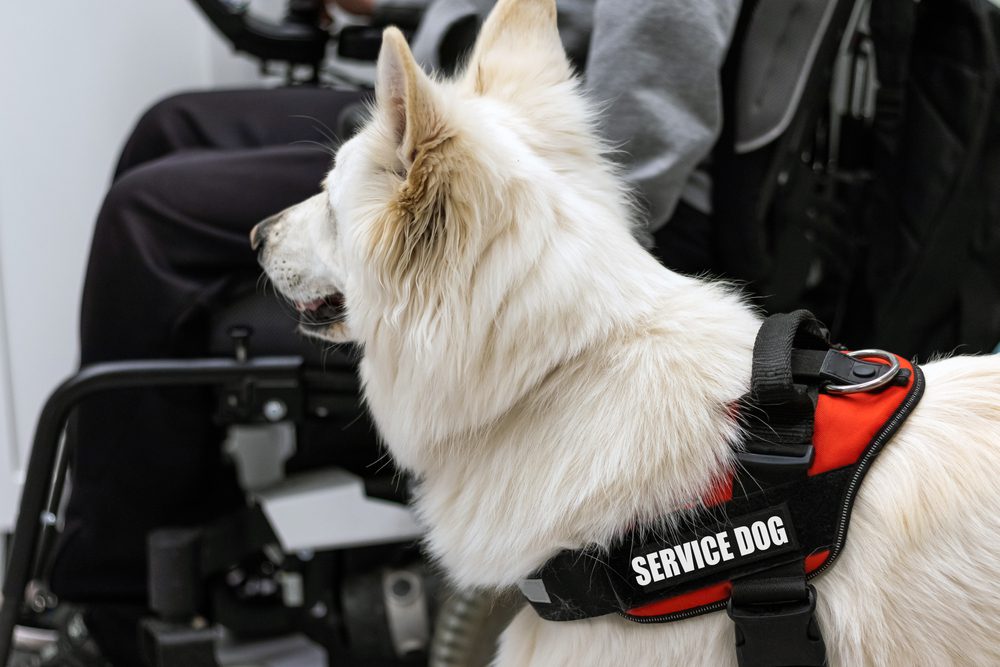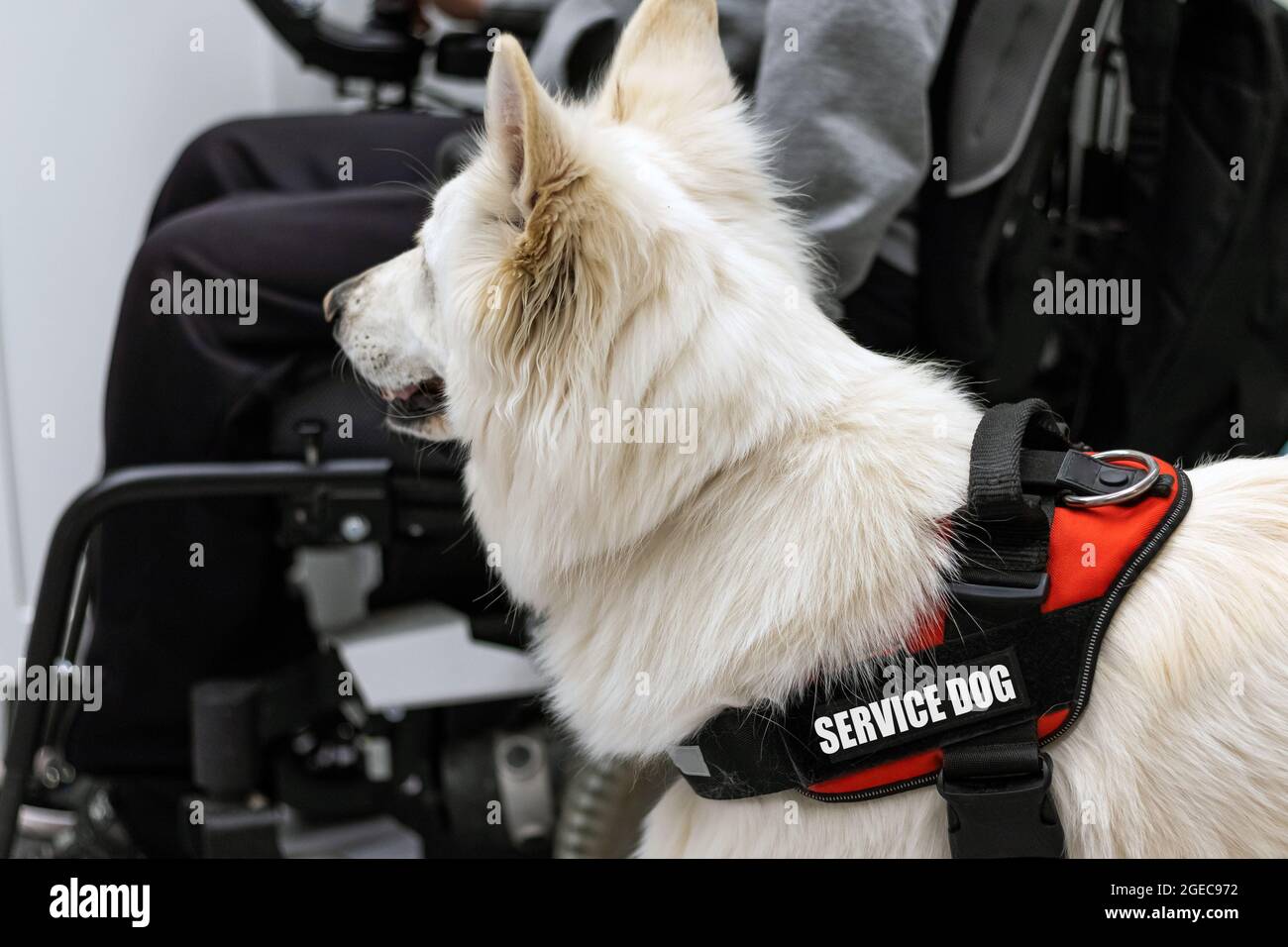Can a hotel refuse a service dog? This question has become increasingly relevant as more individuals rely on service animals for assistance with daily tasks. In the United States, the Americans with Disabilities Act (ADA) provides specific guidelines regarding the rights of people with disabilities and their service animals. However, the rules surrounding service dogs in hotels can be complex and often misunderstood. Understanding these regulations is crucial for both travelers and hotel operators to ensure compliance and prevent discrimination.
Understanding Service Dogs Under the ADA
Service dogs are trained to perform specific tasks for individuals with disabilities, such as guiding the visually impaired, alerting individuals with diabetes to low blood sugar levels, or assisting those with mobility issues. According to the ADA, service animals are not considered pets but rather working animals that provide essential support to their handlers. The law mandates that public accommodations, including hotels, must allow service dogs to accompany their owners without additional fees or restrictions.
This means that hotels cannot ask for documentation proving a guest’s disability or require a service dog to wear a specific harness or identification. They also cannot deny access based on the breed or size of the animal. However, there are exceptions when a service dog poses a direct threat to others or causes significant damage to property. In such cases, the hotel may request the removal of the animal.
Hotel Policies and Service Dog Access

While the ADA sets the legal framework, individual hotels may have their own policies regarding service dogs. Some establishments may require guests to notify them in advance about their service animal to ensure proper accommodations. Others might have specific guidelines for where the animal can go within the hotel premises. It is important for travelers to familiarize themselves with these policies before booking a stay.
Hotels should also train their staff to recognize and respond appropriately to service animals. Employees should understand that service dogs are working animals and should not be distracted or fed by guests. Additionally, hotels must ensure that service dogs are not excluded from areas that are open to the public, such as dining spaces, pools, and common areas.
Despite these guidelines, some hotels may still attempt to deny access to service dogs. This could happen if the hotel believes the animal is not properly trained or if it creates a disturbance. In such situations, the guest has the right to file a complaint with the Department of Justice or seek legal recourse. It is essential for individuals to know their rights and be prepared to advocate for themselves if necessary.
Common Misconceptions About Service Dogs

There are several misconceptions about service dogs that can lead to confusion and discrimination. One common misunderstanding is that all service dogs must be certified or registered. In reality, the ADA does not require service animals to be officially certified. Instead, the determination of whether an animal is a service dog is based on its ability to perform specific tasks for the handler.
Another misconception is that emotional support animals are treated the same as service dogs. While emotional support animals provide comfort and companionship, they are not considered service animals under the ADA. Hotels are not required to accommodate emotional support animals unless they are specifically allowed by the hotel’s policy.
Additionally, some people believe that service dogs must be kept on a leash at all times. While this is generally recommended, the ADA allows for flexibility depending on the situation. For example, a service dog may be off-leash in a controlled environment if it is well-behaved and does not pose a risk to others.
What to Do If a Hotel Refuses a Service Dog

If a hotel refuses to accommodate a service dog, the first step is to remain calm and communicate clearly with the staff. It is important to explain that the animal is a service dog and that the ADA protects the right to bring it into the hotel. If the issue persists, the guest should document the interaction and report the incident to the appropriate authorities.
The Department of Justice is responsible for enforcing the ADA and can investigate complaints related to service animals. Travelers can also reach out to local disability advocacy groups for support and guidance. In some cases, legal action may be necessary to resolve the matter, especially if the refusal results in harm or financial loss.
It is also advisable for travelers to carry a copy of the ADA guidelines and any relevant documentation, such as a letter from a healthcare provider, to support their case. Being prepared can help prevent unnecessary conflicts and ensure a smoother experience.
Conclusion
The question of whether a hotel can refuse a service dog is rooted in the legal protections provided by the ADA. While hotels are generally required to accommodate service animals, there are exceptions in certain circumstances. Understanding these rules and being aware of common misconceptions can help both travelers and hotel operators navigate this issue effectively. By promoting awareness and education, we can ensure that individuals with disabilities have equal access to all public spaces, including hotels.



